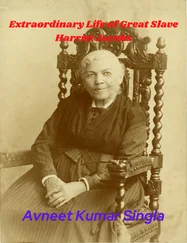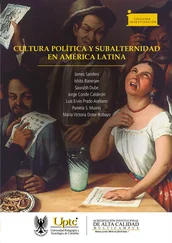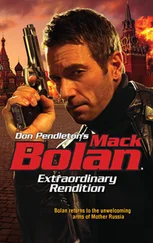Brutus rarely had any contact with the foreign troops or with the few Hungarian officers who, in theory, still technically ran the base. He knew the deal. His presence at Taszár represented another step in Hungary’s transition from Soviet satellite state to American satellite state. No one in the army appeared willing to question the exportation of America’s racist, imperialist tradition into yet another foreign land. Most of the other soldiers, even the rare black officer, couldn’t distinguish between Eldridge and Beaver Cleaver.
The whole base reminded Brutus of Eastern State Penitentiary back home. That was the first real prison built in the colonies, but it hadn’t housed prisoners for at least thirty years. He had taken a tour there once with his sister, before she had J. J. The administrators opened it to the public in summertime and at Halloween turned it into a haunted house. Sometimes one of the local universities would rent it out to put on plays and shit, but the theatergoers had to wear hardhats because the place was in such dismal shape. The prison was designed so that a guard in a central tower could see into every cell. It didn’t matter if you were being watched at any given time — you had to behave because you knew you could be being watched.
Taszár worked in the same, panoptic way. The army created a pervasive environment of paranoia. There was one notable difference, though. Instead of just the officers and the M.P.s being able to see everything going on all the time, all of the soldiers — like the prisoners they were — could as well. Everyone knew everyone else’s intimate business. If someone stole food from the mess hall, or snuck across the motor pool to play a little grab-ass with one of the Hungarian civilians, everyone knew about it. The testosterone-powered cycle trapped everyone on the base in a feedback loop of constant surveillance. That included the foreign troops too. The M.P.s didn’t even need to keep an eye on the soldiers. They policed themselves and each other, just like Orwell had predicted. Even if Brutus wasn’t being watched at any given time, the police and Sparky and these other hillbillies could be watching him, and that was usually enough to make him think twice about doing something stupid. His letters from home were read, his e-mails intercepted, and his uppity behavior reported, all in the name of national security. But hanging out with Magda on occasion was the one bright spot in the dreary grind of army life. He heard the racist murmurings behind his back about his dating a white woman, sure, and although no one said much to his face, there existed a constant threat of reprisal from some gung-ho supremacist.
He felt the weight of his pistol bouncing against his hip with each step. Its presence unsettled him not because he didn’t want to carry it, but because he didn’t like the fact that everyone else was carrying a weapon too. There were too many cowboys running around, anxious to lay down their own personal versions of the law. The higher-ups readily encouraged a system of justice that wasn’t based upon any consistent moral authority Brutus could identify. What, in his reading, Paul Ricoeur referred to as “the practical field” Brutus thought of as “the Man.” And at Taszár, each man had become the Man to the other men. Himself included.
When someone got caught fucking up, it was only elevated to the M.P.s if the situation — and the punishment — couldn’t be handled first within the ranks. As a message, a solider might get stuck on shithole duty for a month, or even pistol-whipped while he slept. The inmates ran the jail, which was why it was so dangerous not only letting everyone run around with a firearm but requiring it. West Philly had been the same back in the eighties, when everyone carried a piece because of all the crackheads. There were shoot-outs every night. Elvin got himself shot in the stomach and had a scar from his ribs all the way down his fat belly.
Apart from catching up with Magda now and then, Brutus stayed more or less in line. He sometimes voiced his more subversive political views, but still, he never expected this kind of trouble, least of all from Sullivan and the higher-ups.
Being watched and scrutinized all the time was bad enough, but the people watching him were now better armed than he was. His weapon no longer functioned properly and hadn’t for a few days, since a couple of components got lost the day he left it in his room to go see Sullivan. Huge disadvantage. And he couldn’t just go and order replacement parts either. Questions would be asked, discipline administered. Fuck all that.
He suspected that Sparky found the pieces and dumped them down the toilet. Brutus was already in a world of trouble, though, so he didn’t care if his roommate put the word out, as he invariably would, that his sidearm didn’t shoot. He carried it with him anyway. Like all things in the army, his weapon existed for the sake of appearance. Every day, he regretted quitting college. Every single fucking day.
Brutus had attended Temple University for two years, where he studied philosophy and took computer classes, but he found he learned more on his own, reading whatever he wanted. He dropped out and took a job as a security guard at the Macy’s next to city hall, which everyone still called Wanamaker’s. Every day, on the bus ride to the store, he passed the recruiter’s office. At the Mambo’s urging he went in and, desperate to hear some good news, believed every last lie they sold him. Money for college, if he ever decided to go back. Rapid advancement. No color barrier. On-the-job training. See the world, hold your chin high, become a man. Nothing at all about the army maintaining the last vestiges of the American slave trade.
He signed on. By week three of basic training, the Seven Army Values felt like deadly sins, and he knew he had made a mistake. The limited potential for career growth afforded an inner-city brother in the U.S. Army soon became clear. They made no attempt to pretend otherwise. Now punks like Sparky dirtied their lily-white hands on ink-jet printouts while Brutus stood out in the freezing cold setting rattraps. The local rodents carried a virus that had made several soldiers sick. Brutus had personally baited over a hundred traps, but to date had caught only nine rats. The men who sucked up to Sullivan didn’t necessarily rise any quicker through the ranks, but they did get the sweetest assignments. Sparky sat in ops reading satellite images or monitoring Radio Beograd while Brutus and the other brothers and Latinos caught vermin in the snow or broke up the ice that formed every night on the runway.
Contrary to the propagandists’ advice, Brutus didn’t fear the wrath of Hungarian women and their social diseases. He had been seeing Magda for the past two months. Conjugal relations with members of the civilian crews were expressly forbidden, but when Magda could sneak loose Brutus arranged to meet her someplace quiet. To do so, he needed to cut across the base to get to the prefab buildings where the officers ran their war. In the army, Brutus had learned, if he acted like he belonged in a certain situation, no one would question him. He could do anything he wanted to so long as he did it with a little authority. Put that glide in his stride and he could probably saunter back into Sullivan’s office and wet him on the spot. If his pistol worked.
In the absence of wind, a three-foot-tall cloud of truck exhaust lingered just off the ground. He followed it to Sullivan’s building. Odors didn’t dissipate in that weather, so the entire base smelled like oil and gunpowder, plus cooking grease and fresh paint. His sinuses were so blocked that the stink didn’t bother him as much as usual. He blew his nose, filling a tissue with soot and tar that looked like the resin coating the inside of a glass pipe. Then the oily smell hit him, only for a second, until his nose clogged up again.
Читать дальше












